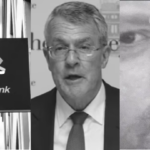Cyclists Outraged Over New Laws

Sydney’s cycling community is outraged about the introduction of tough new laws which the government claims are intended to promote road safety.
The laws include heavy penalties for those who commit offences and a requirement that cyclists carry photo ID at all times. They are set to come into force on March 1 2016 as part of the NSW government’s ‘Go Together’ campaign.
In announcing the new ‘cycling safety package,’ NSW Road Minister Duncan Gay said:
‘The changes we’re making are about striking a balance for everyone on the roads and footpaths…Even with all of these changes in place, which reflect recent changes in other states, I maintain that all road users need to exercise respect when using the road – cyclists, motorists and pedestrians.’
But cyclists have hit back, arguing that car drivers are to blame for the majority of accidents involving cyclists – and that the new laws do not promote road safety.
What Are The New Laws?
The changes, which were first announced last year, include tougher penalties for bike riders who break the law by:
- Not wearing a helmet (up from $71 to $319);
- Running a red light (up from $71 to $425);
- Riding dangerously (up from $71 to $425);
- Holding on to a moving vehicle (up from $71 to $319);
- Not stopping at a children’s or pedestrian crossing (up from $71 to $425).
There are also new laws requiring car drivers to keep a distance of at least one metre when passing cyclists at 60km/h, or 1.5 metres when passing at speeds greater than 60 km/h – and fines of $319 and two demerit points for those who fail to do so.
But perhaps the most controversial change is requiring bike riders to carry photo identification at all times.
Government officials say the measures are necessary to help identify bike riders who are involved in collisions – as well as those who break the law.
Director of the Centre for Road Safety and Transport, Bernard Carlton, explained:
‘There’s been a big change in cycling and we’ve got a lot more cyclists on the road who are commuting and cycling for recreation and health…In New South Wales we have on average around 11 cyclist fatalities every year and 1,500 cyclists are admitted to hospital every year with serious injuries.’
He says that cyclists will have a ‘grace period’ of 12 months from the introduction of the laws, during which they will not be fined for failing to carry ID.
Cyclists Protest Changes
But while many drivers have welcomed the changes, cyclists are fuming, saying they have been unfairly targeted.
On Friday, over 100 cyclists took to the streets in protest – riding from Taylor Square to Martin Place escorted by police.
Bike rider Donald Semken, who organised the protest, believes that cyclists should not be penalised for the mistakes of car drivers:
‘When people get behind the wheels of a car they fail to see us as human beings…We fail to see how an increase in fines and registration by proxy through a compulsory ID make us any safer…We have seen countless studies [showing] that in cyclist and driver incidents, drivers are predominantly at fault.’
Mr Semken and other cyclist groups say the new laws will simply deter Sydneysiders from using their bikes – making NSW the ‘laughing stock of the world.’
But according to statistics compiled by the Australian Transport Safety Bureau, cyclists were found to be responsible for the action which precipitated a fatal crash in 60% of incidents between 1991 and 2005. In the majority of cases, crashes involved cyclists negligently riding through intersections on the road, or moving from a footpath to the road.
By contrast, a study conducted by Adelaide University’s Centre for Automotive Safety found that drivers were to blame for 79% of accidents which left a rider seriously injured. In most instances, drivers were found to have hit a cyclist after attempting to make a turn.
The new laws are set to come into force despite the recent protests.
Going to court for a traffic offence?
If you are going to court for a traffic offence, call or email Sydney Criminal Lawyers anytime to arrange a free first consultation with an experienced, specialist traffic lawyer who will accurately advise you of your options, the best way forward, and fight for the optimal outcome in your specific situation.






